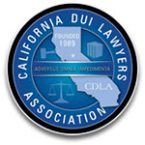If you are a California nurse concerned about making sure that you protect your right to practice your profession, you should be aware of the typical reasons California nurses trigger an investigation by the California Bureau of Registered Nursing (BRN). An investigation by the BRN can result in probation, suspension of your license or revocation of your nursing license and other sanctions and disciplinary actions. There is no statute of limitation for the filing of a disciplinary action by a California licensing board.
The Nursing Practice Act (NPA) is the body of California law that mandates the Board to set out the scope of practice and responsibilities for RNs. The NPA is located in the California Business and Professions Code starting with Section 2700.
California Registered Nurse Laws and Regulations
California Vocational Nurse Laws and Regulations
Here are 10 typical reasons why California nurses have their licenses investigated, suspended or revoked or have their nursing license applications denied:
- Unprofessional Conduct, Professional Misconduct, Incompetence, Gross Negligence, Dereliction of Duty or Ethical Violations
A nursing license can be suspended or revoked due to accusations of unprofessional conduct, misconduct, dereliction of duty, gross negligence or incompetence in complaints brought by patients, coworkers or employers. Charges can be brought against you as a nurse regardless of whether these were intentional or unintentional acts.
- Charting Errors: Falsifying Medical Records or Failure to Keep Adequate Records
Charting errors by nurses can also result in letters of inquiry from the Bureau of Registered Nursing (BRN). Common nursing charting errors include failure to accurately or completely record patient health stats, drug administration history, a nurse’s actions, drug reactions or changes in a patient’s condition and even illegible record keeping.
- Criminal Activity
Failing to report and/or expunge a past misdemeanor or felony conviction are grounds for a licensing board revoking your license. Similarly, if you participate in a crime while practicing your profession and are charged with a crime, failure to report this will result in you losing your license to practice. A DUI conviction or any conviction involving use or possession of drugs and alcohol is considered a violation of the Nursing Practice Act.
- Drug Diversion
Misappropriating medications and drug diversion of controlled substances is a serious offense and a violation of the California Nursing Act. Failing to waste medications and controlled substances is a serious charge for nurses. Theft of controlled substances by a nurse can be for personal use, to supply the drug to another user, or for financial gain. Nurses may divert drugs by stealing drugs from a medication dispensary, narcotic cabinet, or pharmacy or by falsifying documentation, such as a medication doses not actually administered to the patient and instead diverted to the nurse. Drug diversion by a nurse can also include removing a pain patch directly from a patient’s body for personal use or even rifling through medical or hazardous waste (used syringes for example) for controlled substance residue.
- Failing a Drug Test or Refusing to Take One
Nurses who are the subject of random drug testing by employers are also at risk for losing their nursing licenses in California. This includes use of cannabis despite the recent Proposition 64 legalization of recreational use of marijuana. The California Supreme Court has even ruled that companies can fire workers who fail drug tests even if they present evidence of a doctor’s recommendation for legal medicinal use of marijuana. Under California law, all employers retain the right to require pre-employment drug tests and take illegal drug use into consideration in making employment decisions. Sometimes a disgruntled coworker or patient may make a complaint about a nurse which lead to drug testing although, in many cases an unimpaired nurse can simply show up for work with drug residue in his or her system from recent recreational use. Nurses who fail a drug test are reported to the BRN.
- HIPAA Violations
Other conditions which can cause termination of a nursing license and/or disciplinary actions by boards of licensing are healthcare-specific. For example, in the case of a California nurse, violating the Health Insurance Portability and Accountability Act (HIPAA) can sometimes cause a nurse’s license to be revoked. Even in cases of accidental violations, nurses must report these incidents to Privacy Officers or to their supervisors or serious consequences can occur. Serious violations of HIPAA Rules, even when committed without malicious intent, are likely to result in board disciplinary action, including termination and sanctions by the board of nursing.
- Out of State Disciplinary Activity
Out-of-state disciplinary action by another nursing board in another state can be a common basis for California nursing discipline, under applicable California statutes that allow the Board of Registered Nursing to seek collateral discipline against a licensee who is disciplined or censured by another state’s licensing entity (even when the licensing entity is not necessarily a nursing board).
- Inappropriate Social Media Activity
The California BRN takes patient privacy very seriously. Therefore, if you as a California nurse publish online, for example on social media sites anything violating the privacy of a patient, you can be investigated by the BRN. This can include social media posts with:
- Photos or videos of a patient
- Identifying a patient by name or identifying characteristic
Similarly, the BRN discourages any posts which actively promote health care services or service providers, disparage them or which take a position on a controversial healthcare topic. And of course, any posts which show a nurse in a compromising situation (misusing drugs, alcohol, using profanity etc.) also could subject you to an investigation of your license to practice nursing.
- Not Getting Fingerprinted
Title 16, California Code of Regulations, Sections 1419, 1419.1, and 1419.3 require the submission of fingerprints when a nurse renews his or her California nursing license if the licensee was not previously fingerprinted by the Board or if a record of fingerprint submission no longer exists. Since 2010, the Board of Registered Nursing has been enforcing the mandatory collection of fingerprints and background information on California nurses seeking to renew their nursing licenses. Failure to submit a full set of fingerprints to the DOJ on or before the date required for renewal of a license is grounds for discipline by the California Board of Registered Nursing.
- Not Paying Your State Taxes
Since July 2012, nearly all licensed professionals in the State of California have been subject to losing their licenses to practice their professions (as well as their drivers licenses) if they are included in California’s list of the top 500 largest tax delinquents. Any licensee who is on the California top debtors list will face denial or suspension of their professional license when they reapply for them. The applicant or licensee then has 90 days from the issuance of a preliminary notice of suspension to either satisfy all outstanding tax obligations or enter into a payment installment program. Any such person who fails to come into compliance by one of these two options will have his/her license denied or suspended until the licensing board, commission, department or other agency, receives a release from state tax authorities.
If there has been a complaint or a legal action that jeopardizes the status of your nursing license, it can be a very scary situation. Having worked so hard for your California nursing license, you should do everything possible to make sure you keep it, to protect your livelihood and career and to maintain your professional reputation. A disciplinary action by the BRN or another investigating agency or regulatory board is a serious threat to your ability to practice nursing and requires a strategic response.
The Law Offices of Lucy S. McAllister have successfully represented a wide range of California licensed nurses and we are experienced in handling all types of BRN licensing accusations and licensing issues in addition to criminal charges. Let us help you protect and defend your California nursing license so that you can continue to practice the profession which you love. For additional information or to schedule a consultation on a nursing licensing issue, please contact our law offices today at (877) 280-9944.
Listen to what our clients say about working with us:












